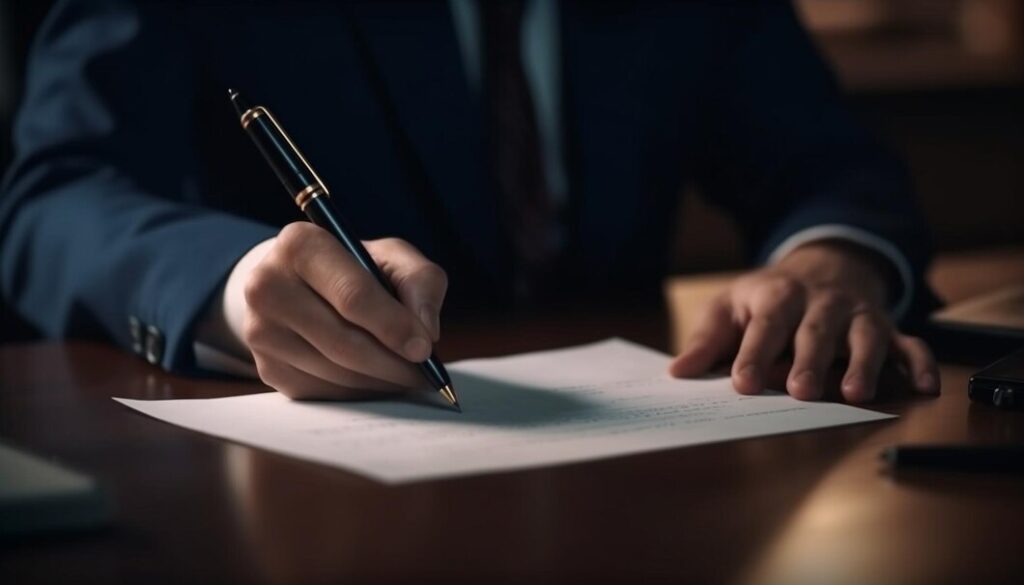
Post-accident legal complexities, including personal injury claims, are daunting. This concise guide, sourced from White Plains personal injury lawyers, offers insights on navigating legal hurdles.
It outlines the role of these lawyers, accident types, interaction with insurance firms, liability determination, settlement negotiation, trial expectations, selecting legal representation, and understanding personal injury implications.
Understanding Personal Injury Law
Personal injury law, also known as tort law, enables an injured party to seek compensation for harm caused by another’s negligence or intentional act. Misconceptions, or ‘personal injury myths’, can misguide potential claimants.
A common myth is that personal injury cases take years to resolve. While some complex cases require extensive time, many conclude within months. This myth may discourage victims from seeking rightful compensation due to fear of lengthy legal battles. A White Plains personal injury lawyer can provide accurate time estimates based on their experience with similar cases.
Another myth suggests minor injuries don’t justify legal action. However, minor injuries can develop into serious health issues, so consultation with a personal injury lawyer is essential, regardless of injury severity. Understanding these facts can guide individuals in making informed decisions about pursuing legal action.
Understanding the ‘statute of limitations’, the time limit for filing a lawsuit is vital. This limit varies by jurisdiction and case type, emphasizing the importance of a timely legal consultation to preserve the right to compensation. Dispelling personal injury myths and comprehending key concepts like the statute of limitations are crucial to effectively navigating personal injury law.
The Role of a Personal Injury Lawyer
A personal injury lawyer, equipped with legal qualifications, performs crucial tasks in personal injury law.
These tasks include:
- Legal advice provision: Interprets law, and advises client on optimal action.
- Court representation: Argues client’s case, and presents evidence and arguments.
- Settlement negotiation: Engages with the offender’s insurance company for best compensation.
- Investigation conduct: Collects evidence including medical reports, witness statements, and accident scene details.
These roles highlight the importance of lawyer qualifications and understanding of injury types, influencing their ability to secure client justice and compensation.
Common Types of Personal Accidents
Personal injury law often deals with vehicle collision cases, often linked with negligence or traffic law violation. Slip and fall cases, involving premises liability and property safety, are also significant.
Vehicle Collision Cases
In personal accidents, vehicle collision cases are common. They require detailed investigation for liability determination and rightful compensation.
Key elements include:
- Accident prevention: Adherence to traffic rules, vehicle maintenance, and defensive driving reduce accident risk.
- Collision aftermath: Evidence collection includes police reports, medical records, and witness statements.
- Legal representation: Skilled personal injury lawyers guide through legal complexities.
- Compensation claim: Documentation and proof of injuries, damages, losses due to accident is necessary.
Understanding these aspects can enhance handling of vehicle collision cases.
Slip and Fall Incidents
Slip and fall incidents are common personal accidents requiring legal expertise for liability assessment and compensation claims. Poor premises maintenance and inadequate hazard identification often cause these incidents.
The challenge is proving owner’s negligence in maintaining safety, causing the accident. The identification of risks like wet floors, uneven surfaces, or poorly lit areas is vital. A competent personal injury lawyer is essential, aiding in navigating legal complexities, gathering evidence, and arguing for rightful compensation, ensuring victims’ adequate compensation for their suffering and losses.
Dealing With Insurance Companies
“Handling insurance companies post-accident involves understanding the claim process and negotiating settlements. This discussion elucidates these aspects, guiding personal injury cases.”
Insurance Claim Process
Initiate the insurance claim process after an accident. This involves interactions with insurance companies which can be complex. Potential pitfalls include claim denials and policy loopholes.
Key steps in this process include:
- Thorough understanding of your policy to identify loopholes.
- Preparedness for claim denials and knowledge of appeal procedures.
- Detailed record keeping of insurance company interactions.
- Seek advice from a personal injury lawyer for complex cases.
The insurance claim process requires diligence, patience, and knowledge of insurance policies.
Negotiating Settlement Amounts
Strategic negotiation is crucial when discussing settlement amounts with insurance companies to protect your rights and interests. Beware of pitfalls like quick, lower-than-worth offers. Experienced in minimizing payouts, insurance companies necessitate knowledgeable attorneys for effective navigation and to spot bad faith acts. Utilizing alternative dispute resolution methods, such as mediation or arbitration, can expedite and potentially lead to fairer outcomes in settlement disputes.
Determining Liability After an Accident
In accident cases, liability determination involves factors like witness credibility, accident reconstruction, police reports, and traffic law violations.
- Witness credibility: The account validity impacts fault determination. Assessment factors include proximity to the incident, clear event recall, potential bias, and overall honesty.
- Accident reconstruction: Detailed analysis of the accident scene, vehicle damage, and available video footage recreate the incident using scientific principles.
- Police reports: Neutral third-party perspective detailing the incident, witness statements, and law violations.
- Traffic law violations: Breaching traffic rules at the incident time can significantly affect liability determination.
Steps to Take Immediately After an Accident
Post-accident, immediately call 911 for emergency assistance. This alerts police and medical teams, initiating the accident scene documentation. If feasible, supplement this official report with personal notes and photos. Seek immediate medical attention regardless of injury severity to certify your medical condition.
Finally, contact a White Plains personal injury lawyer promptly to navigate legal procedures, meet deadlines, submit necessary paperwork, and negotiate with insurance companies. These steps protect legal rights and enhance compensation potential. The early involvement of a skilled lawyer can be crucial in ensuring that your case is handled effectively, improving the chances of a favorable outcome.
Gathering Evidence for Your Case
Post-accident, evidence collection is critical for a successful personal injury case.
Here’s how to do it:
- Document the accident scene immediately with photos or videos. Focus on injuries, property damage, and accident-contributing conditions.
- Collect physical evidence, such as damaged clothing, faulty equipment, or car crash debris.
- Secure medical records and receipts, highlighting injury extent, treatments, and costs.
- Interview witnesses for firsthand accounts to support your claims.
Each evidence piece establishes the other party’s negligence and your injuries. Detail in evidence collection is vital. Consult a personal injury lawyer to bolster your strategy and navigate legal challenges post-accident.
Understanding Compensation Claims

A compensation claim, crucial in personal injury cases, is a financial reimbursement request for losses from an accident, including medical costs, lost wages, emotional distress, and pain. Claim eligibility is determined by injury severity, accident circumstances, and fault degree.
Partial fault can still result in compensation. Strict deadlines, or statutes of limitations, exist for personal injury claim filing. These deadlines vary by accident type and jurisdiction. Missing them can revoke compensation rights, so prompt action and legal guidance are essential.
Factors Influencing Compensation Amounts
In personal injury cases, compensation amounts depend on injury severity, lifestyle impact, and legal representation quality.
Severity of Injuries
Injury severity directly influences compensation in personal injury cases. Major factors determining compensation include:
- Rehabilitation: Severe injuries demand costly medical treatments and prolonged absence from work.
- Psychological effect: Emotional distress, anxiety, or depression from serious injuries are compensable.
- Permanent disability: Compensation increases if injuries result in permanent impairments.
- Lifestyle changes: Necessary alterations to lifestyle, like home modification or personal care, impact the settlement amount.
Knowledge of these factors simplifies the complex process of personal injury settlements.
Accident’s Impact on Lifestyle
Assessing an accident’s impact involves evaluating changes in the victim’s lifestyle, increased living expenses due to care reliance, and emotional traumas like stress, anxiety, and depression that affect work ability. These factors determine the compensation amount.
Legal Representation Quality
Legal representation quality in personal injury cases hinges on attorney expertise, adherence to legal ethics, effective client communication, and resource availability.
- Attorney Expertise: A lawyer’s specialization in personal injury law equips them to secure successful claims.
- Legal Ethics: Ethical standards guide a lawyer’s actions to prioritize client interests, increasing chances for positive case outcomes.
- Client Communication: Clear lawyer-client communication enhances understanding of case details, improving case management.
- Resources: Availability of adequate resources enables a legal firm to construct a strong case, positively impacting compensation amount.
These elements shape the quality of legal representation, influencing the success of personal injury claims.
Managing Medical Expenses and Bills
Post-accident medical expense management involves strategic financial planning including debt consolidation. Debt consolidation combines multiple debts into one manageable payment, easing financial burden. This strategy can lower total debt via negotiated interest rates, especially helpful with high-cost alternative therapies.
Alternative therapies, though effective for physical and psychological trauma, are costly. Treatments include acupuncture, chiropractic care, yoga, and meditation. While some insurance plans cover part of these costs, many do not, increasing out-of-pocket expenses for accident victims.
Therefore, understanding debt consolidation strategies and alternative therapy costs are crucial for post-accident financial management. Personal injury lawyers can provide valuable guidance in navigating these complexities.
The Importance of Medical Records
Medical records are crucial in personal injury cases, providing a precise historical account of injuries, treatments, and recovery. Their accuracy is paramount as they substantiate claims, determine compensation, and significantly influence case outcomes.
Verifying Medical Record Accuracy
Medical record accuracy supports personal injury cases and healthcare. Inaccurate records undermine claims and healthcare, hence the need for verification. Record falsification includes incorrect diagnosis, treatment, or patient identity.
Verifying records ensures they reflect accurate medical history and treatment. HIPAA regulations mandate strict patient confidentiality in medical records. Inconsistencies or gaps signify potential inaccuracies. Consult healthcare providers for discrepancies, and request amendments to inaccurate information. Accurate records ensure appropriate healthcare.
Role in Legal Cases
In personal injury litigation, accurate medical records are pivotal. They establish the extent and impact of injuries. The records, filled with legal terms, objectively narrate the victim’s post-accident physical state. They support or refute court claims. The precision and clarity of records can sway the jury’s perception, influencing the verdict. Medical records calculate compensation, impacting the settlement value. Understanding medical records’ role in personal injury cases is key to navigating legal complexities.
Negotiating a Personal Injury Settlement
In personal injury settlement negotiation, key factors are injury scope, emotional distress compensation, settlement timelines, and legal representation. Injury scope refers to the extent of physical damage and its impact on daily life. Emotional distress compensation covers injury-induced psychological conditions like anxiety and depression.
Settlement timelines depend on case complexity, willingness to settle, and court schedules. Quality legal representation influences negotiation and settlement outcomes. A competent White Plains personal injury lawyer guides through these complexities for appropriate compensation, ensuring that each aspect of the case is carefully considered and addressed to secure the best possible outcome for their client.
Going to Trial: What to Expect
In a personal injury trial, three stages exist: Jury Selection, Witness Testimony, and Closing Arguments. Jury selection involves both sides examining potential jurors for biases. The process relies on a lawyer’s ability to gauge people’s attitudes and beliefs.
The trial’s crux is the Witness Testimony stage, where testimonies from the plaintiff, defendant, or third-party witnesses form the case’s foundation. These testimonies must be clear, consistent, and credible. The trial concludes with Closing Arguments, a summary from each side before jury deliberation. The process, although complex, can be strategically navigated with proper legal representation. Understanding these stages enhances readiness for a personal injury trial.
How to Choose the Right Lawyer
Selecting the right lawyer involves considering credentials, experience, fee structures, and communication. Check the lawyer’s educational background, certifications, and affiliations to validate their competence in personal injury law.
Ensure they have extensive experience in handling similar cases. Understand their fee structures, considering lawyers who work on a contingency basis. Prioritize lawyers who are responsive and transparent, maintaining open communication. Your lawyer’s choice influences your case’s outcome, requiring careful selection based on research and alignment with your needs.
Long-Term Implications of Personal Injuries
Personal injuries trigger long-term impacts, affecting a victim’s life quality and finances. Psychological trauma, such as post-traumatic stress disorder, depression, and anxiety, is a significant consequence, disrupting daily life and necessitating therapy. Rehabilitation, including physical and occupational therapy, is a prolonged process, potentially leading to financial strain and emotional distress.
Some injuries may result in permanent disability, requiring lifetime care and lifestyle adjustments. Legal redress is vital for victims to recover damages for these long-term implications. A competent personal injury lawyer can secure a settlement that compensates for the victim’s suffering and future needs.
Frequently Asked Questions
How Does Emotional Distress Factor Into a Personal Injury Claim?
Emotional distress, measured through Distress Measurement, influences personal injury claims’ compensation. This distress reflects psychological suffering, impacting total injury compensation.
Can I File a Personal Injury Claim if the Accident Was Partially My Fault?
Yes, filing a personal injury claim is possible even if partial fault in the accident belongs to you, due to the comparative negligence principle. This principle associates fault proportion with the compensation you receive.
What Are the Potential Tax Implications of a Personal Injury Settlement?
Tax implications of personal injury settlements generally don’t exist. Yet, taxes may apply to punitive damages and interest. Effective settlement structuring and consideration of deductible expenses can mitigate tax implications.
How Does a Personal Injury Claim Affect My Employment?
A personal injury claim may affect your employment due to potential employer retaliation, job responsibility changes, or discriminatory practices.
What Happens if the Person Responsible for My Injuries Is Uninsured or Underinsured?
If the liable party lacks adequate insurance, claiming compensation becomes complex. Implementing strategic claims strategies ensures rightful injury compensation. Seek professional legal advice for assistance.
Conclusion
Post-accident legal challenges require a skilled personal injury lawyer. Understanding personal injury law and insurance companies’ handling is critical. Lawyer choice impacts personal injury case outcomes. Legal processes are important for recovery and normal life resumption after personal injuries.
Read Also:
- Assistance From An Atlanta-Based Personal Injury Attorney Following An Accident
- How A Personal Injury Law Firm Can Help
- 5 Benefits Of Injury Lawyer In 2023











0 Reply
No comments yet.